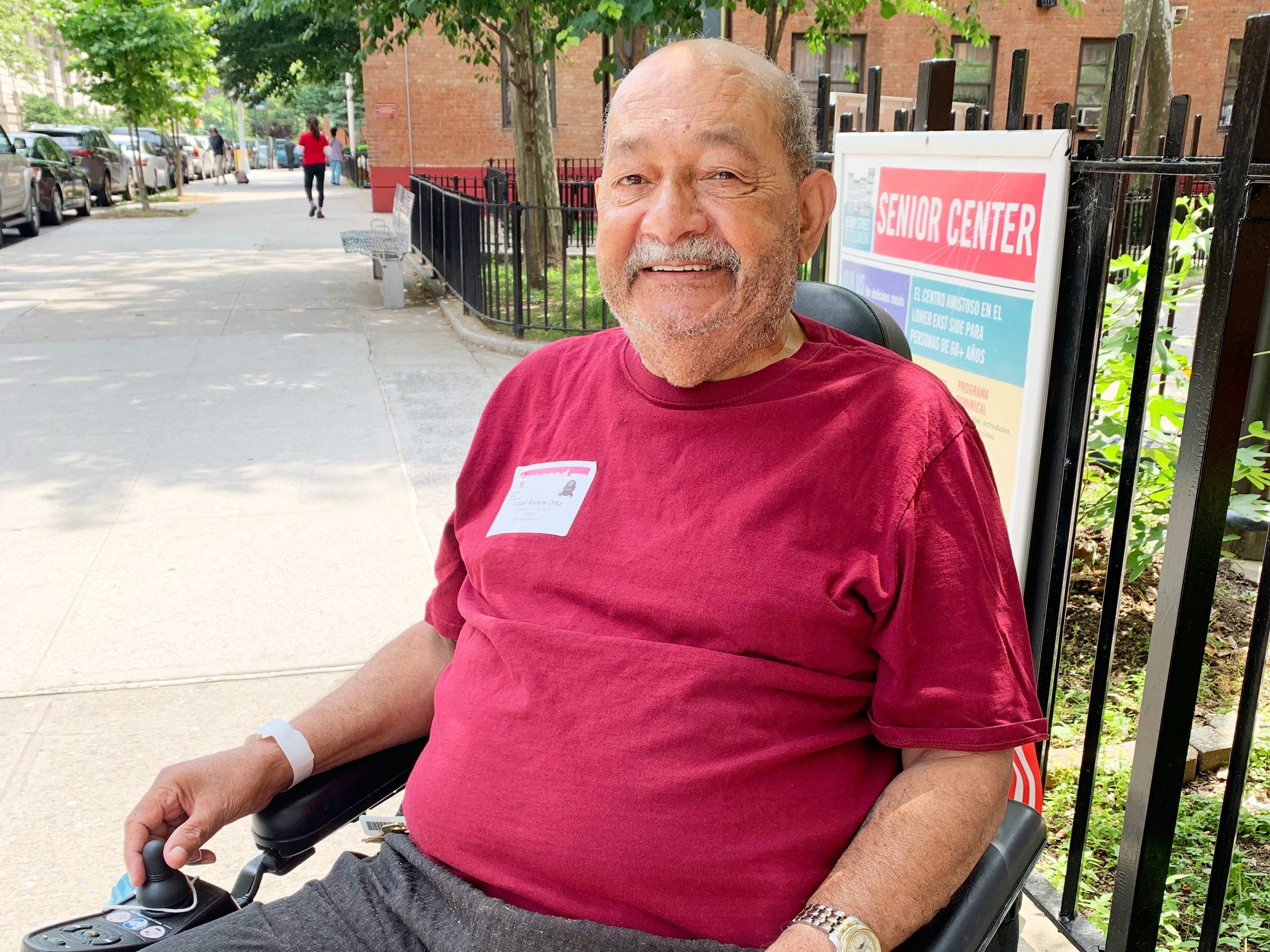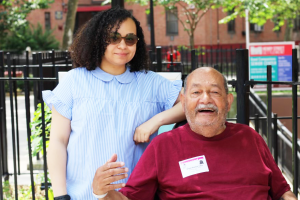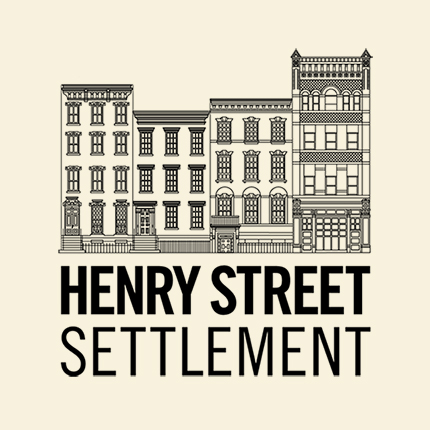An Unofficial Retirement Community Allows Seniors to Age in Place
By Mataeo Smith

Angel Ramos Ortiz lives in the Vladeck Houses and receives support from Henry Street’s Naturally Occurring Retirement Community (NORC).
Angel Ramos Ortiz, 79, a Lower East Side native, needed extensive physical therapy after two brutal vehicular accidents at ages 39 and 42. While physical therapy helped him recover, today Ortiz occasionally requires assistance with activities of daily living like cooking and cleaning. The Naturally Occurring Retirement Community (NORC) at Henry Street Settlement connects him with the support and necessities, including arranging for a home attendant, to age independently in the comfort of his own home.
Ortiz’s first accident occurred while he was driving down Lewis Street on the Lower East Side while coming home from work. When a van suddenly crossed his path at an intersection, Ortiz slammed his brakes—to no avail. He remembers enduring a harsh concrete landing 250 feet away from the accident after the impact cast him through the windshield, resulting in broken ribs. He suffered a fractured pelvis about three years later while performing wheelies on his motorcycle. Ortiz lost his balance and was crushed under the weight of his bike.
“Picture me doing wheelies,” Ortiz said. “I feel very lucky to be sitting here right now.”
A NORC is a community—either an apartment building, collection of buildings, or a neighborhood—where a large number of residents, 60 and older, are aging in place. NORC programs in New York City are collaborations between a housing sponsor, a social service agency like Henry Street, and a health partner, with funding from a mix of public and private entities such as the Department for the Aging.
A NORC is a community—either an apartment building, collection of buildings, or a neighborhood—where a large number of residents, 60 and older, are aging in place.
Henry Street’s NORC provides free programs to 600 of the 1,100 seniors in the Vladeck Houses, taking a preventive approach to their health and well-being. Access to health and social services increases seniors’ autonomy and ability to remain independent in familiar settings. Health services include home, office, or phone visits from a registered nurse, assistance with scheduling medical appointments, health and nutrition screenings, medication reviews, and health-promotion activities such as fitness classes. Social services include help applying for benefits like Medicaid and SNAP (food stamps), coordinating home attendants for assistance with daily living, mental health counseling, and case management to ensure that the seniors’ personal affairs—such as doctor’s appointments, benefits, and financial affairs are in order.
Ortiz can contact his case manager, Arlene Gratereaux, by phone for any needs he may have. During a recent appointment, where they met at Henry Street’s Senior Center, Ortiz brought Gratereaux three pieces of mail, which she read and explained to him.
“The seniors get a ton of mail,” Gratereaux said. “The mail gives them anxiety because they’re not sure whether something is important.”
Ortiz and Gratereaux do not follow a set schedule but rather meet when Ortiz has a specific need. For him and for the other older adults in Vladeck Houses, the NORC is a safe, stable, and healthy environment that embraces independence to the fullest extent.

Ortiz with his case manager, Arlene Gratereaux, outside Henry Street’s Senior Center.
According to Betsy Smith, NORC program director, a well-run nursing home may appear to be a healthy place for a fragile elder; it provides social interaction, medical care, and sound nutrition. However, there is a reason why most seniors are adamantly opposed to living in one. Friends from the neighborhood may no longer be able to visit, and spending the final years of one’s life in an institution is not ideal after decades of being surrounded by one’s own possessions and memories. When Smith reviews her statistics each year, she sees that about 98 to 99 percent of NORC seniors are still living in their homes at Vladeck Houses.
The beginning of the COVID-19 pandemic in March 2020 tested the NORC’s resilience. Following the lockdown, the NORC team was required to work remotely for more than a year, assisting clients by phone or video calls.
“It was a very sad time for our community,” Smith said. “Although the vast majority of NORC residents have remained healthy throughout the pandemic, we had 20 of our NORC clients that we knew die of Covid.”
Case managers, like Gratereaux, had to adjust the way they listened to their clients on the phone. Seniors can sound fine over the phone, she said, while they are suffering in silence. When Gratereaux meets with a client in person, she observes their hygiene, body language, facial expression, mood, and overall appearance. Over the phone, if Gratereaux picks up clues that a client is ailing, she meets with them under social distancing protocols.
Today, Ortiz is surrounded by familiar faces and memories. He can be found in the Senior Center besting his adversaries in games of dominoes and pool or sharing his famous Cuban sandwiches—a delectable treat consisting of white bread, Swiss cheese, and ham topped off with mayonnaise, mustard, and sweet pickles spread on each slice of bread.
“Our mission is to provide services for the seniors so they can age in their own homes within a healthy atmosphere,” Smith said. “That’s what our mission is and we continue to do a very successful job.”
